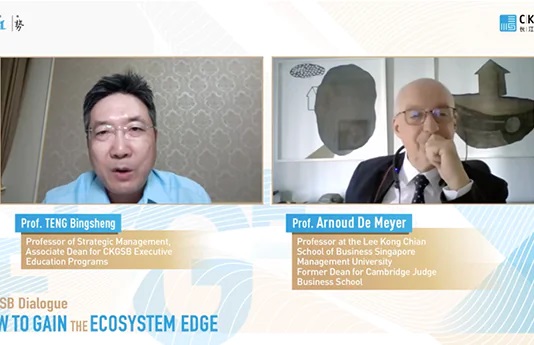The Ebola pandemic has exposed our vulnerability and lack of preparedness to deal with disaster. What can we learn from our mistakes?
A pandemic is almost always the product of two related disasters: the unchecked spread of a lethal virus and the inadequate response of authorities to its progress. So far, the spread of Ebola has been no exception to the rule.
Time will tell whether scientists will be able to develop an effective vaccine against the deadly virus before it can mutate into a form that is easier to catch, or if, as often happens, it gradually weakens. But when it comes to the second ingredient of a pandemic, the public health response, a number of epidemiologists and crisis managers have already seen evidence of a grossly insufficient effort:
- The president of Medicins sans Frontieres (Doctors without Borders) castigated the United Nations in September for “failing to come to grips with a transnational threat” and instead joining “a global coalition of inaction”.
- Internal investigators at the World Health Organization castigated the organization and in particular the country’s African regional offices for weak leadership and incompetence. “Nearly everyone involved in the outbreak response failed to see some fairly plain writing on the wall,” WHO investigators wrote in a draft October report. “A perfect storm was brewing, ready to burst open in full force.”
- Writing in the Journal of the American Medical Association (JAMA), Michael Osterholm, an infectious diseases expert at the University of Minnesota, agreed: “Researchers and public health officials should have and could have imagined what a virus such as Ebola that is transmitted through direct contact could do once it infected people outside of sparsely populated rural Africa and found its way into the crowded and impoverished neighborhoods of large African cities.”
Lessons learned
To an extent, many countries and institutions are now working hard to make up for that lost time. The US has sent 1,400 soldiers to Liberia to dispense aid and build 17 100-bed field hospitals. All in all, global aid appropriations to West Africa for the fight against Ebola now amount to more than $1.3 billion—a lot of money for a desperately poor region, almost equal to half of Liberia’s $2.7 billion annual GDP.
Reflecting on how the Ebola crisis has been handled and mishandled since infected people began turning up in West African clinics last spring, specialists in crisis management, public health and corporate social responsibility see important lessons for government, public health agencies, business, and individuals, in the best ways to manage a crisis.
Government officials
For Patrick Lagadec, a Paris-based specialist on crisis intelligence and leadership, the biggest failure has been the slow response of the world’s leaders. “As people in charge are not prepared… the global reaction cannot be that adequate,” he says.
Although by definition an unexpected catastrophe isn’t something that can be marked on the calendar prior to the fact, Lagadec argues that governments should develop what he calls a “Rapid Reflection Force” of skilled specialists who are able to look at emerging crises from a variety of perspectives and craft an effective response.
Instead, he sees leaders say and do what he regards as precisely the wrong things. “When leaders are not prepared, the only thing they are able to say is: `Don’t panic’, and repeat it in each sentence. Doing that just shows everyone that the ones to panic are the leaders,” he says.
Without reflection, their actions may also have counter-productive consequences. For example, Lagadec describes as “the terrible initiative” the decision of the governors of New York and New Jersey to place any medical workers returning from West Africa under quarantine—a measure Medicins sans Frontieres also scorned as counter-productive because they say it will discourages volunteers who could prevent the disease from spreading in the first place even as it stokes more panic.
Public health officials
At the same time, the experience of the Ebola pandemic is leading some public health experts now to think that it’s sometimes necessary to think that they not only invest resources based on trying to prevent the greatest number of deaths, but also to quell the panic that can ensue when people face an unfamiliar threat.
Perhaps the biggest lesson of the Ebola crisis, wrote Michael T. Osterholm in his October JAMA essay, is the recognition that fear of a disease may have even more social destabilizing effects than the disease itself. So far, the global death toll has reached nearly 5,000, according to US Centers for Disease Control and Prevention statistics.
That might sound like a lot for a fairly small region—Liberia has a population of only 4.3 million—but Osterholm noted that such familiar scourges as AIDS and malaria have actually killed more people in West Africa this year than Ebola. In spite of that, it’s Ebola that is tearing West African society apart. “There is now clear evidence that an infectious disease such as Ebola can threaten the stability of a country’s or region’s government, economy and social fabric,” he wrote recently in the same JAMA essay.
In addition to coping with a shortage of resources, the West Africans have also been victims of a failure of imagination on the part of government, in Osterholm’s view. “The lesson to be learned is that more creative imagination is needed in considering future infectious disease scenarios and in planning accordingly,” he wrote.
Business
Business may have lessons to learn from the Ebola crisis as well. “We have learnt that diseases like this not handled properly infect everything, breakdown human interaction, cause political conflict, destroy businesses and communities at an extremely rapid rate. This disaster is forcing a recast of the priorities in a globalizing world to protect human and economic assets,” says Samantha Taylor, president of Reputation Dynamics, a New York consultancy that specializes in corporate social responsibility.
In particular, Taylor argues that the boundaries between business and social work are necessarily blurry in a market as challenging as Africa. “With increasing business, product development investment interests in Africa, companies need to develop more holistic approaches, collaborate with governments/NGOs to ensure adequate resources to ensure community resilience for the long term, protection of people and livelihoods, as well as adequate prevention and treatment services from trusted health services providers,” Taylor says.
Some companies are already taking these kinds of steps. Airtel, IBM Research Africa and Kenya’s Echo Mobile have rolled out a citizen engagement and analytics system in Sierra Leone that makes it possible for citizens affected by Ebola to communicate directly to the government—and for government analysts to map on the basis of those messages where the need for outreach is greatest.
Individuals
Perhaps the most surprising takeaway is the role that individuals operating outside a traditional institution can now play in prevention. One reason Nigeria has suffered only eight Ebola deaths and is now on the verge of being declared Ebola-free may be thanks to Lawal Bakare. In July, the 31-year-old Lagos dentist and public health promoter launched Ebola Alert, a group that uses Twitter and Facebook to provide Nigerians—and now more than 74,000 people all over the world—with a source of reliable up-to-the-minute information about the disease.
A spokesperson for Ebola Alert tweeted that four factors made the difference in preventing Ebola from taking off in Africa’s most populous country: “1. Early identification of the index [first] case 2. Early response to outbreak. 3. More manpower/volunteers 4. Ebola Alert.”
Although Nigeria is home to 174 million, the fact that 114 million of them have cell phones, 56 million are on the internet, and 11.2 million are on Facebook made it possible to get information to the entire country very quickly, according to the spokesperson.
In the end, the success of Bakare’s campaign suggests that perhaps the biggest lesson government officials, public health workers, business leaders, and individuals alike can draw from the management of this crisis may be the value of information. As an old German proverb posted on @EbolaAlert on October 29 puts it, “Fear makes the wolf bigger than he is.”




















